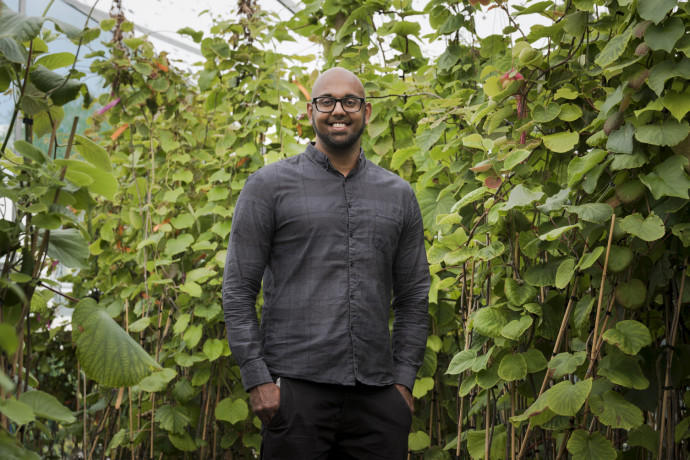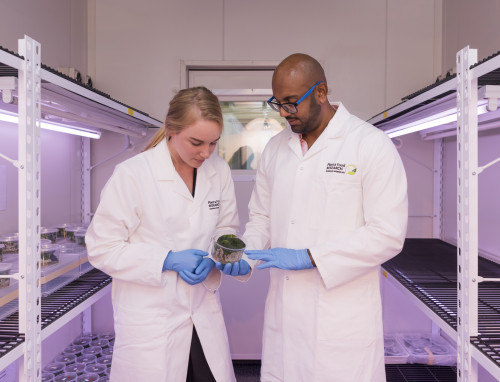Jay Jayaraman

2019: Dr Jay Jayaraman, Plant & Food Research, has been awarded a Rutherford Foundation postdoctoral fellowship for research entitled: ‘A strategy towards durable kiwifruit immunity to Pseudomonas syringae pv. actinidiae (Psa)’
About the Fellow
Jay grew up around agricultural communities in Fiji, seeing first-hand the pivotal roles agriculture and horticulture play in our society. He witnessed the devastating impact of plant diseases on the productivity and economic surety of these communities, and the lack of knowledge regarding prevention and control of these diseases. In his current research, Jay is most excited about the opportunity to study R genes in perennial crop species – a significantly understudied area of research. Perennial crops (like kiwifruit, grape, and apples) require much more of their R genes than their better-studied analogues in annual crops (like cereals, tomato, and potato). Understanding the resistance genes involved in immunity to Psa will open the door to studying the evolutionary emergence of a pathogen of a nascent agricultural crop.
Jay says the Rutherford post-doctoral fellowship will allow him to grow scientifically, build different skills, and discover new and exciting avenues of research.
Personally, it also allows Jay to participate in community outreach and education, such as the Plant & Food Research's podcast programmes (SciGest/SciFri).
Listen to Jay's Plant & Food Research podcast 'Bitten by the science bug' where he discusses his science journey and the 'bang for buck' potential of plant science discoveries.

Dr Jay Jayaraman (right) with PhD candidate Erin Stroud (left) in the Bioprotection Technologies laboratory at Plant & Food Research. They are holding a sample of kiwifruit plants in tissue culture. Photo: supplied.
About the Project
From 2008-2012, the rapid outbreak of a kiwifruit bacterial disease known as Psa swept through New Zealand’s kiwifruit industry causing severe crop losses, particularly in gold kiwifruit crops. The industry bounced back by introducing a cultivar with improved tolerance to the disease and applying copper-based sprays. These measures currently manage the spread of Psa but there are concerns on the long-term sustainability of copper-based sprays for the environment and so the industry continues to explore alternatives to give growers additional options to mitigate the ongoing risk of Psa. Furthermore, there is the real risk that Psa will adapt to the new cultivar, allowing the disease to cause widespread harm again.
Like other plant and animal pathogens, Psa causes disease by secreting proteins known as effectors that suppress their host’s defence response – in this case the kiwifruit plant. The host works in response to identify and defend against effectors using R-genes. In a continual arms race, pathogens adapt their effector suite, evolving it to be potent and specialised. Equally, R-genes defend against these specific effectors by bestowing long-lasting resistance to their hosts.
Dr Jay Jayaraman’s research aims to identify the first Psa-resistant R-gene system that is naturally present in some non-industrial kiwifruit species, with the ultimate goal of breeding a durable commercial cultivar. This requires developing a deep understanding of the interaction between kiwifruit and Psa. Using molecular genetics, gene-knockout, and gene-replacement techniques, Jay will identify the effectors and corresponding R-genes that trigger resistance. Additionally, he will determine which R-genes are the ones that recognise and target the most pernicious effectors, to ensure the durability of a future Psa-resistant cultivar. Once identified, fast and accurate natural breeding strategies can be used to develop a new cultivar for orchards in Aotearoa that have long-term resistance to Psa, eliminating the need for chemical controls.
